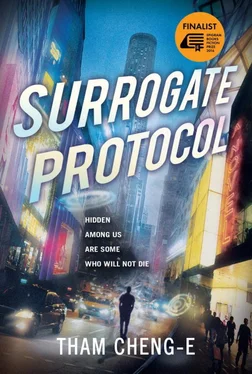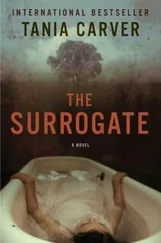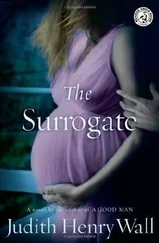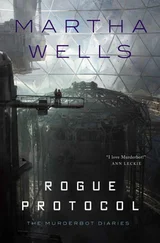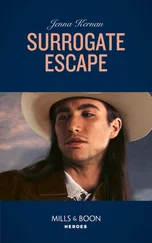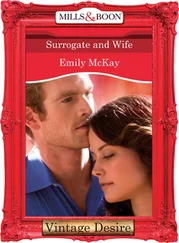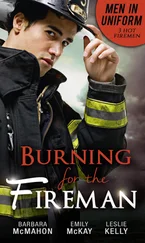/ / /
When Aldred awoke, three kerosene lamps were flickering from rafters above him. He felt the texture of the straw mat on which he lay. The cloud of flies over him gave an unsettling intimation of the state of his wounds.
His mother was nearby: he could heard her snuffling. She wasn’t a woman who would snuffle. His father passed into his sight and looked down at him. Flecks of grey stubble above his ears were all the hair that remained. He had a large hooked nose that made up most of his broad, strong face. His eyes were long and narrow and were deeply wrinkled at the corners. His gaze was soft, and Aldred saw moist tracks across his parched, leathery skin. It was he who appeared to have been crying.
“Our buffaloes saved me,” Aldred found himself uttering in a throaty whisper.
“I know.”
Aldred felt a callused but gentle hand upon his forehead.
From the far end of the room he heard mother whimper. If she whimpered then things had to be very bad. Footfalls drifted into range, sounding strong and resolute. A large man appeared. He was bald, his hairless skin pulled taut over a craggy face and looked to be crafted of fine porcelain. Although Aldred didn’t recognise him he thought that he and father had to be very good friends because they embraced each other very warmly.
Afterwards he bent over to look at Aldred and beneath his protuberant brows Aldred saw that one of his eyes was green and the other yellow.
“He will survive the Transfusion if he shares your blood,” said the man in a voice as thick as tar. “But I cannot speak the same for you, Great Bear.”
Aldred heard nothing else. Father took the strange man by the arm and led him away to a spot where they could continue their conversation in private. The last Aldred heard was mother’s anguished cry.
/ / /
By the light of dawn Aldred woke up to find most of his wounds already bandaged in strips of frayed linen. Beside his bed stood an elaborate metallic contraption that fitted neatly in a leather valise. Tubes of a strange gelatinous material ran from it and entered Aldred’s arms and legs. He heard movement and the tinkle of glass vessels but he couldn’t turn his head because of the pain. By the lamplight shadows shifted, and the tall, strange man appeared over him and touched his face. Aldred wanted to ask for his father and mother, but his glands and tonsils, now swollen with abuse and infection, afforded not even a whisper.
“My name is Origen and I am a friend of your father’s,” said the strange man in all his vocal richness. “You will go back to sleep and you will heal.”
Origen hovered something over Aldred’s eyes. It was an egg-shaped device with a surface so reflective that Aldred saw in it a contorted image of his brokenness. A beam of red light filled his sight, and he fell back into slumber.
OVER THE LAST four days a spell of influenza has confined Aldred Lock to his bed and reminded him of his newly-acquired vulnerability to everything human. The old house at Clacton has been sold for a handsome profit. After deducting part of it for the purchase of new accommodation and adjusting for inflation, the money will last him a while. Aldred doesn’t swim so he figured he doesn’t need a condo.
At present the windows are wide open. Muslin curtains sway to a breeze. The morning is bright, but not yet scorching. A light haze lingers and masks a sleepy skyline in the distance. Aldred rests his hands on the aluminium sill and watches the world from his twenty-ninth storey apartment just off Dawson Road. He is looking at traces of the old estate where an elderly Sikh once peddled milk with his scraggy cows. There’s the Princess House that has been preserved. There’s the spot where Hannah’s flat once existed.
On a low antique shelf a turntable sings. Aldred’s finger taps to the melody and his lips move to the lyrics:
Day will break and I’ll awake
And start to bake a sugar cake
For you to take for all the boys to see
We will raise a family
A boy for you, a girl for me
Oh, can’t you see how happy we would be
He now knows why Hannah loved this song. In it there is optimism. It’s good to have optimism. Perhaps it’s the only thing that’s truly free, that you can have as much of as you want without having to worry about consequences. At most you’d die an optimist. It beats dying a neurotic.
The catch? You need faith for optimism to work.
Aldred moves away from the window and takes up his journal. He riffles through the empty pages after his last entry. They’ll have to remain empty because there really aren’t many things to write about now. For a long time his pen hovers over a page. He hasn’t got the best memory in the world but at least a grocery list is now enough to get him through the days without a hitch.
At last he begins to write, with slow, careful strokes of the pen:
The expectation of death sets in us a vulnerability that humbles. And with it comes wisdom. It obliges one to plan, to make arrangements, to be responsible. It drives the urge to set things right, to correct one’s mistakes before the appointed hour, and to love before we can no longer love.
My name is Aldred and the Count ends here.
/ / /
Dempsey Hill is as quaint and tranquil as Aldred had left it. He observes the FourBees site from afar. A perimeter of bland hoarding encloses it like the hermetic walls of a forbidden city, revealing not a sliver of its mysteries and secrets. They are but a concluded chapter of a past that is best forgotten. It won’t do him any good to pry.
Haltingly he plods on towards Loewen Lodge, fearing that someone might recognise him. Upon arrival he is relieved that the matron who threw him out during his last visit is away, and no one else seems to be paying him any attention. The lady at the reception is rummaging through something under the counter when Aldred taps the bell.
Her head pops up and Aldred notices her name-tag.
“Pam, right?” He directs both fingers at her and tries to sound friendly.
A slight frown of annoyance. “Yes, sir?”
“The sustenance allowance for the patient in 8-C?” He draws circles with his finger over the countertop. “I called earlier.”
“Ah yes,” Pam rises to her feet and starts flipping a ring folder. “It’s a transfer from a previous donor, yes?”
“Exactly.”
She pulls out a document. “It’s been arranged. You’re Mr Landon Lock?”
Aldred hands her an old IC that bears his previous name. Pam takes it, references it against something and then returns it to him. Everything checks out fine. Hannah had apparently planned it to the detail.
“Did you know the previous donor?” says Aldred.
“The young lady?” Pam is bending over the desk and scribbling something.
“I heard she was his wife.”
“It’s written in the records, sir. We don’t usually look into such matters. Some donors prefer to remain anonymous and we respect that.”
“Ah.” Aldred looks away and drums his fingers restlessly on the counter. After all that had happened, the mystery remains.
“Did you bring the cheque, sir?”
Aldred slides it to her and she passes him a document along with a pen. He sees the old man’s name and IC number printed on one of the sheets. It is a name in a Mandarin dialect, and one which he does not recognise. He signs the document.
Pam gives him a receipt, some pamphlets and thanks him for the donation with a standard, service-quality smile.
“Can I see him?” asks Aldred.
“Perhaps in half an hour?” Pam suggests. “They’re all out for their afternoon walks, sir.”
Читать дальше
